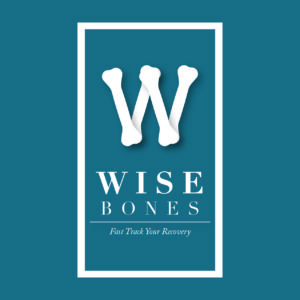You’ll be out and about and someone will ask “so what do you do”?
This has to be the most irritating question anyone can ask- yet I still observe this constantly – think back to when you were last at a social gathering, bar or party and you’ve just met someone. Shortly after the standard “hey how you going/how’s your night been etc etc they drop “so..what do you do?”
Now I’m sure most of the time the intentions are good – but the essence of the question bugs me because it’s inherently judgmental. You are in effect being judged by the nature of your occupation.
We are not our job. If our job defines who we are, what makes us different from the other 20,000 colleagues in our profession? Rather we should be asking people what their story is. A story tells gives us much more insight into the individual and experiences that shape their identity, not just their annual salary.
So I’m going to tell you my story as it’s relevant to the ongoing content I’ll be putting out and should give you some context behind what I’m about (PS – get ready for a shit-ton of personal pronouns- you’ve been warned!).
Where it all began
I got through high-school with very good grades (Academic Honors First Class) – and had a number of choices of degrees I could pursue. (As an aside – what 18yo knows what he wants to do for the rest of his life?…I’ll talk about why I think the education system is flawed another time).
I tossed up between medicine and followed doctors around the hospital ward to get a first-hand feel of what it would be like. The work-life balance, hourly pay and high medical school fees was enough to put me off that.
I considered law – but after asking a number of law students, researching the supply/demand of solicitors and getting my head around how much rote learning/reading was required without practical benefit, I ditched that idea. (Sure, there are other avenues you pursue with a law degree but this was my thinking at the time).
I thought about working in the corporate space, but the thought of being a cog in a giant lumbering machine with excessive red tape/inefficient processes, water-cooler chats, and waiting in line to climb up the corporate ladder turned me off that.

Jim sums up how I felt about my career options
Then I stumbled across physiotherapy/physical therapy. It seemed like a solid, practical career with great growth opportunities, taught you to think critically, had a decent starting salary and your decisions were based on helping people – not shareholders (there are some dubious practitioners out there but every profession has them, right?)
Just like that, my 18 year old self had made the decision to complete a four year degree and ultimately practiced for a further five years in a specialised profession.
The Cracks Began To Show
It was two years in, that the entrepreneurial cracks began to show. I was working at a private practice going through the motions of assessing and treating clients. The questions you would ask were similar and I was already starting to notice patterns emerging within the information clients would provide and the diagnosis I would give them. I thought – surely this can all be automated, or streamlined, so I’m not spending hours a day asking the same questions.
It was then I was then I created my first startup Wisebones – an online-injury management platform (think of it like the WebMD Symptom Checker for Physical therapy). I was so pumped that this would revolutinise my profession that I was up til 2am consistently liaising with the dev team. Despite accumulating hundreds of paying users, building algorithms and customising a complex CMS – I was unable to secure investment, and ultimately had to self-fund much of the development.
In hindsight, Wisebones was doomed to fail from the start for the following reasons:
- People don’t simply want a diagnosis. Many seek physical therapy for rapport, and human interaction – something that cannot be automated
- The business was not scalable – it required constant customer service for questions about injuries and exercises – even Zendesk macros weren’t able to deal with the amount of variables each person has.
- Legal issues – if someone followed our advice online and became injured as a result, we would be liable (even with disclaimers – Wisebones would assume the practitioner/patient relationship.)
- The diagnostic accuracy was not high when self-administered (even with explainer videos).

We even had a fancy logo!
Lessons Learnt
But – if I had my time again, there’s no way I would change anything – even if the $15,000 loss hurt at the time, I felt strangely liberated and more alive than when I was assessing/treating clients – this was big-picture stuff and I wanted more of it! The lessons I learnt were invaluable:
- If your idea hasn’t been released to the market yet – research the possible barriers before committing. I’m all for first-mover advantage (although I think less important than going back a decade ago), but often there’s a clear reason that could range from complicated (local legislation affecting product distribution) to simple – (your product not solving a need).
- Get users involved early (not from family and friends!). If they aren’t willing to pull out their credit card – you’re not providing enough value.
- You can’t polish a turd – investment or funding won’t help a flawed business model – focus on building a sustainable business first.
- Don’t base all your early decisions on user feedback- this is counter-intuitive to what I previously mentioned but you cannot let users dictate your vision. As the late Steve Jobs was quoted saying – Users often don’t know what they want until they are shown. This doesn’t mean ignore user feedback, but it’s unlikely you will get massive innovative changes to your product relying purely on user feedback. The same goes for analytics in the early-stages of business – paralysis by analysis is a real thing!
- Marketing is just as important as product development and must be considered from the start.
It was from this initial startup that my passion for building businesses and acquiring/retaining users through digital marketing was unlocked.
My next post will focus on my gradual transition away from a specialised career into one that better fits my DNA.
Does the question “So What Do You Do” bug you as much?
Related Articles
Why American Optimism Should Be Embraced In Business
American optimism is something us Aussies should learn to do better. I want you to think back to when you were a kid. Remember your limitless aspirations? What about all the questions and curiosity in the world you held? The inspiring professions you were drawn to?...
Focus On Providing Value And The Rest Will Come
A focus on providing value at scale is the surest way to make a dent in the universe and money. Yet why do so many people focus on the symptom (money, growth etc) instead? Some join the entrepreneurial world to make money. While there is nothing wrong with this on...




